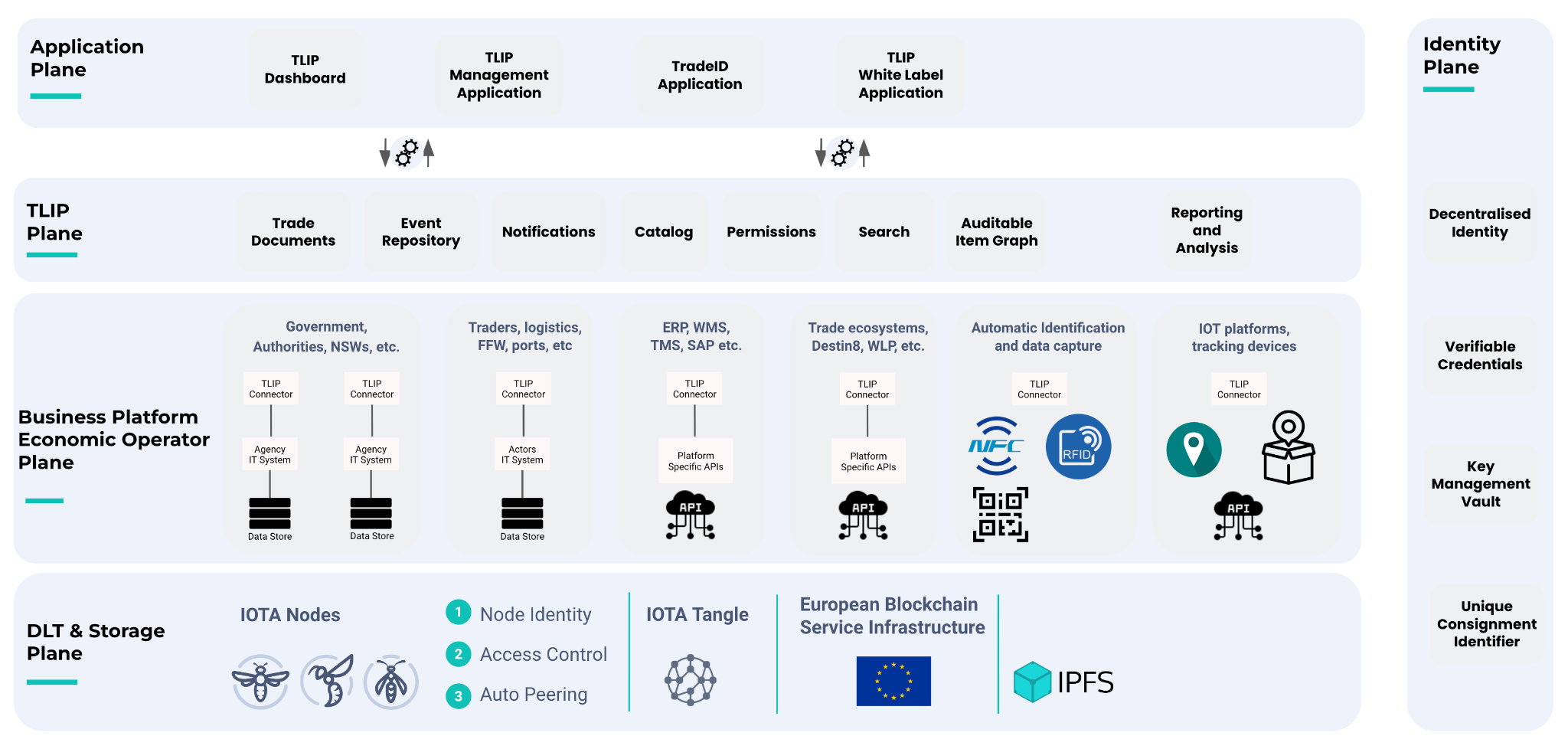Design principles and benefits
The TLIP platform is developed based on the following design principles:
1. Data sovereignty:
Data sovereignty involves the legal and governance aspects dictating where data is stored and how it is accessed, ensuring compliance with national or regional regulations. TLIP Facilitates sharing of existing data and, rather than creating new copies of them. There are no central actors (i.e., platform owners) with privileged positions. Data owners can start new relationships (data sharing) at their own will and thus create an attractive market for solution providers to compete in providing new services making use of shared data.
2. Data ownership:
TLIP architecture ensures that data is secure and can only be accessed by legitimate parties. Access control is managed on a peer-to-peer basis between data owners and data consumers, making use of Web3 decentralized identities and verifiable credentials that allow one-to-one verification of parties without intermediaries.
3. Data authenticity:
In accordance with the general principles of Web3 decentralized technology, the sharing of data/documents among stakeholders and the subsequent verification of their authenticity and integrity is achieved without any centralized trusted authority. This ensures confidentiality, security and privacy on shared data.
This translates into a number of benefits, the most important of which are:
- Enable time saving, making data and documents available at time of generation d, and reducing the risk of delays in transferring paper documents
- Generate one visible truth, using distributed ledger technologies to guarantee that shared data remains immutable and their source verified and accountable to minimize mistakes and fraud
- Accommodate current infrastructure, by integrating existing systems instead of creating new ones and facilitating their expansion through standardized open APIs.
